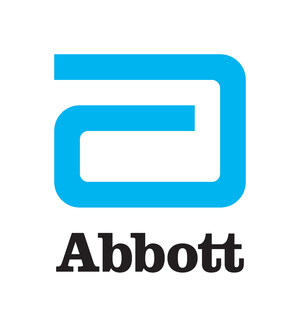Abbott Receives FDA Clearance for New Ovarian Cancer Test
Abbott's new ARCHITECT HE4 test helps doctors, patients better manage treatment for deadly women's cancer
ABBOTT PARK, Ill., June 3 /PRNewswire-FirstCall/ -- The U.S. Food and Drug Administration (FDA) has cleared a new diagnostic test to monitor ovarian cancer, a disease that will strike an estimated one out of every 71 women in the United States in their lifetimes. Abbott's new ARCHITECT HE4 (human epididymis protein 4) assay, the first automated test of its kind available in the United States, uses a simple blood test to aid in monitoring for the recurrence or progression of this disease.
"Disease monitoring in ovarian cancer is crucial. Seventy-five percent of all ovarian cancer patients will have a recurrence," said Cara Tenenbaum, vice president of policy and external affairs, Ovarian Cancer National Alliance. "New monitoring tools may provide patients and physicians with critical disease information to help make important treatment and care decisions."
The current test most widely used to monitor ovarian cancer, CA125, measures levels of a protein in the blood as an indication of a possible recurrence or disease progression in ovarian cancer patients. While 80 percent of ovarian cancers express CA125, 20 percent of all ovarian cancers do not. By using Abbott's new HE4 test in conjunction with other clinical methods, including CA125, physicians can get a more comprehensive clinical picture when monitoring ovarian cancer patients.
A 2003 study by Hellstrom et al of known ovarian cancer biomarkers found that HE4, which has been detected in high levels in the blood of some ovarian cancer patients, shows the highest sensitivity and specificity of any other marker, and is considered the best single marker for stage 1 of the disease.
"HE4 is an excellent marker for monitoring women diagnosed with ovarian cancer, especially in those patients where CA125 is not a marker for their disease," said Richard Moore, M.D., Women and Infants Hospital, Brown University, Providence, Rhode Island. "The addition of HE4 to monitor recurrence or progressive epithelial cancer is an important advance in ovarian cancer care and will provide us with the best information available today."
According to the American Cancer Society, the five-year survival rate of ovarian cancer patients is 46 percent. However, when the disease is diagnosed and treated before the cancer has spread outside the ovary, the survival rate increases to 93 percent. Unfortunately, less than 20 percent of all ovarian cancer is found at this early stage.
"Abbott remains committed to finding more efficient and cost-effective ways to aid in the detection and monitoring of cancer," said John Coulter, divisional vice president, U.S. commercial operations, Abbott Diagnostics. "With the FDA clearance of the ARCHITECT HE4 assay, we are able to provide physicians with a test that will help guide important patient care decisions with a high level of consistency, reliability and affordability."
Abbott partnered with Fujirebio Diagnostics, Inc. in the development of the assay. The ARCHITECT HE4 assay is also approved for use in Europe, as well as in other countries in Asia Pacific and Latin America.
About Ovarian Cancer
Ovarian cancer is the leading cause of death from gynecological cancers and the fifth-leading cause of cancer death in women in the United States. Women who are postmenopausal are at the greatest risk for ovarian cancer. Ovarian cancer affected nearly 22,000 women in the United States last year.
Epithelial ovarian cancer (EOC) is the most common type of ovarian cancer and begins from the cells that cover the surface of the ovary. EOC accounts for an estimated 85 to 90 percent of all ovarian cancers.
About Abbott's ARCHITECT HE4 Assay
Abbott's ARCHITECT HE4 assay is a chemiluminescent microparticle immunoassay for the quantitative determination of HE4 antigen in human serum. The assay is designed to be used as an aid in monitoring recurrence or progressive disease in patients with epithelial ovarian cancer, and should be used in conjunction with other clinical data. The ARCHITECT HE4 assay should not be used as a cancer screening test. In addition, certain types of cancer (e.g., mucinous or germ cell tumors) rarely express HE4, and the use of the ARCHITECT HE4 assay is not recommended for monitoring patients with those types of cancer.
About Abbott Diagnostics
Abbott Diagnostics is a global leader in in vitro diagnostics and offers a broad range of innovative instrument systems and tests for hospitals, reference labs, blood banks, physician offices and clinics. With more than 69,000 institutional customers in more than 100 countries, Abbott's diagnostic products offer customers automation, convenience, cost effectiveness and flexibility. The history of Abbott Diagnostics is filled with examples of first-of-a-kind products and significant technological advancements, including the development of the world's first diagnostic test to detect HIV.
About Abbott
Abbott (NYSE: ABT) is a global, broad-based health care company devoted to the discovery, development, manufacture and marketing of pharmaceuticals and medical products, including nutritionals, devices and diagnostics. The company employs approximately 83,000 people and markets its products in more than 130 countries.
Abbott's news releases and other information are available on the company's Web site at www.abbott.com.
SOURCE Abbott
WANT YOUR COMPANY'S NEWS FEATURED ON PRNEWSWIRE.COM?
Newsrooms &
Influencers
Digital Media
Outlets
Journalists
Opted In





Share this article